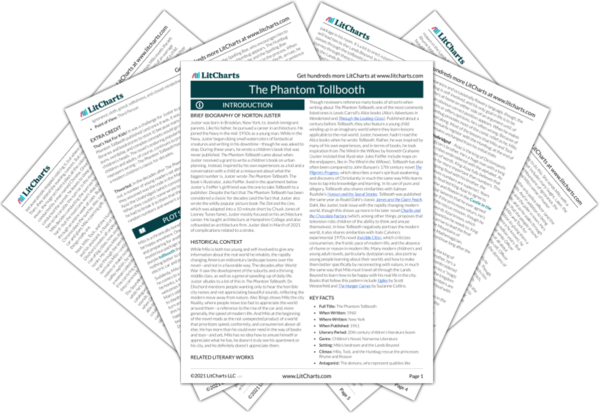If one looks at the kings’ argument with figurative rhyme and reason, the princesses’ ruling makes sense: people need both numbers and words to communicate. Both are, as the princesses say, extremely important, so the argument is pointless. But because the kings have way more political power than their sisters, they’re able to imprison the princesses in the castle and get rid of figurative rhyme and reason in the Lands Beyond. This explains why Dictionopolis, at least, is so ridiculous: there’s no reason or sensibility to temper the absurdity.
